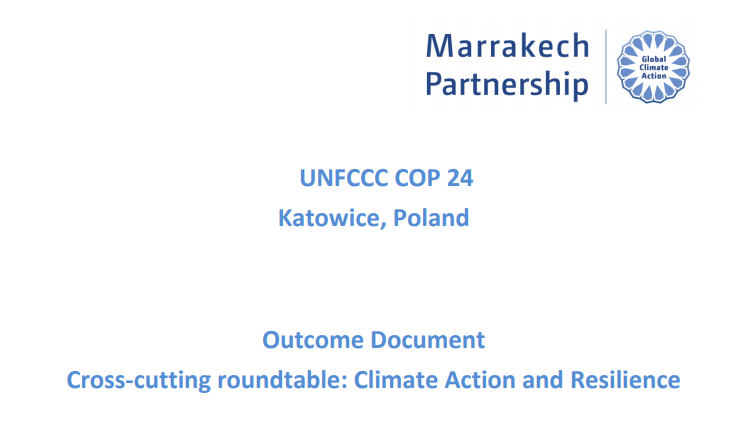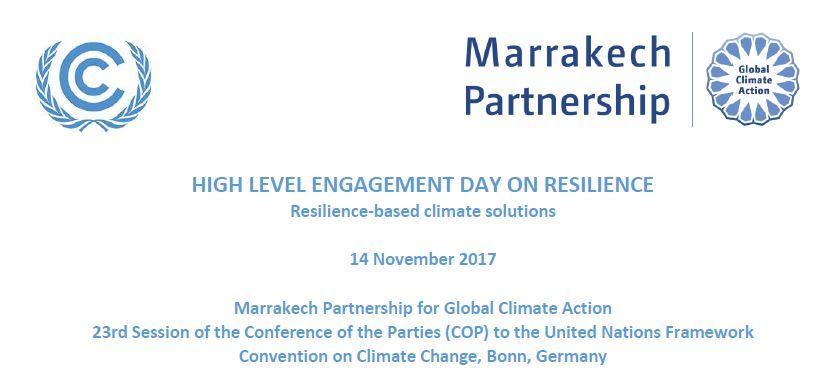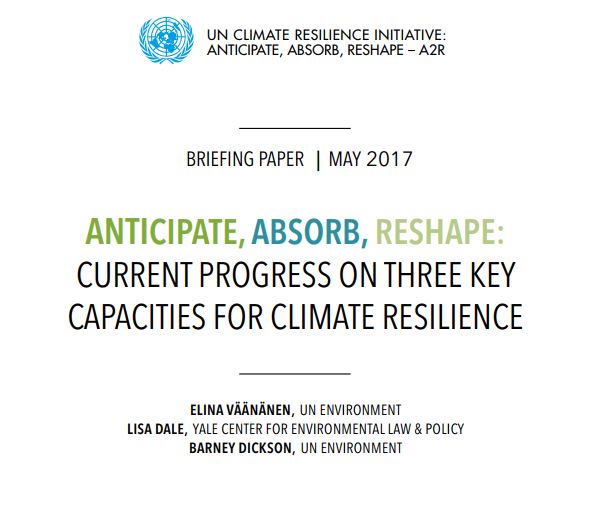A2R Tracking Progress Study
At D&C Days 2019, during COP25, at the Building Resilient Food and Agriculture Systems Track, A2R presented the findings of the A2R Tracking Progress Study. Besides analyzing existing indicators used by public, private and community actors for measuring progress in building resilience, the study calls for a simple set of agreed climate risk reduction and adaptation interventions and related indicators for the food systems. The study also presents 11 key interventions for building climate resilience for agri-food systems.
Download all the documents from the session here:
Summary of the Tracking Progress Study
Hand-Out Sheets:
Hand-Out Sheet: Agro-climatic and Disaster Risk Information systems
Hand-Out Sheet: Awareness raising, knowledge management and capacity building
Hand-Out Sheet: Climate and disaster risk governance
Hand-Out Sheet: Climate friendly and sustainable diets
Hand-Out Sheet: Climate risk proofing of grey infrastructure
Hand-Out Sheet: DRR/CCA good practices at farm level
Hand-Out Sheet: Emergency preparedness and response
Hand-Out Sheet: Early Warning and Early Action
Hand-Out Sheet: Food loss and waste
COP 24 Resilience Roundtable Outcome Document
At COP23, for the first time resilience was high on the agenda under the Presidency of Fiji. There was a resounding message that climate resilience starts with people, within their local contexts and environments. Progress on the global goal on adaptation must capture efforts from the ground up, and attract equal attention as mitigation. We saw an unprecedented level of commitment being made to climate resilience collectively by private, public and community representatives. There was a strong recognition of the urgency to invest across and within sectors, especially in agriculture, forests, oceans, and water in SIDS, in LDCs as well as in other most climate vulnerable countries.
The UN Climate Resilience Initiative A2R - Anticipate, Absorb, Reshape promotes the strengthening of three key capacities for climate resilience: the capacity to anticipate and act on climate hazards through early warning and early action; the capacity to absorb shocks by increasing access to climate risk insurance and social protection; and the capacity to reshape development pathways by transforming economies to reduce risks and root causes of vulnerabilities and support the sound management of physical infrastructure and ecosystems.
This briefing paper presents the key findings of a baseline analysis of progress of these three climate resilience capacities. The analysis reviewed the data available for 114 developing countries and represents one of the first contributions towards a global understanding of the current state of play on climate resilience. The briefing paper also discusses the challenges –both conceptual and data-related –that this type of assessment faces and suggests ways of overcoming them. This paper aims to contribute to the broader discussion on metrics and methodologies for assessing climate resilience.
Short profile of the UN Climate Resilience Initiative A2R showcasing A2R Partner projects, produced for COP22.





